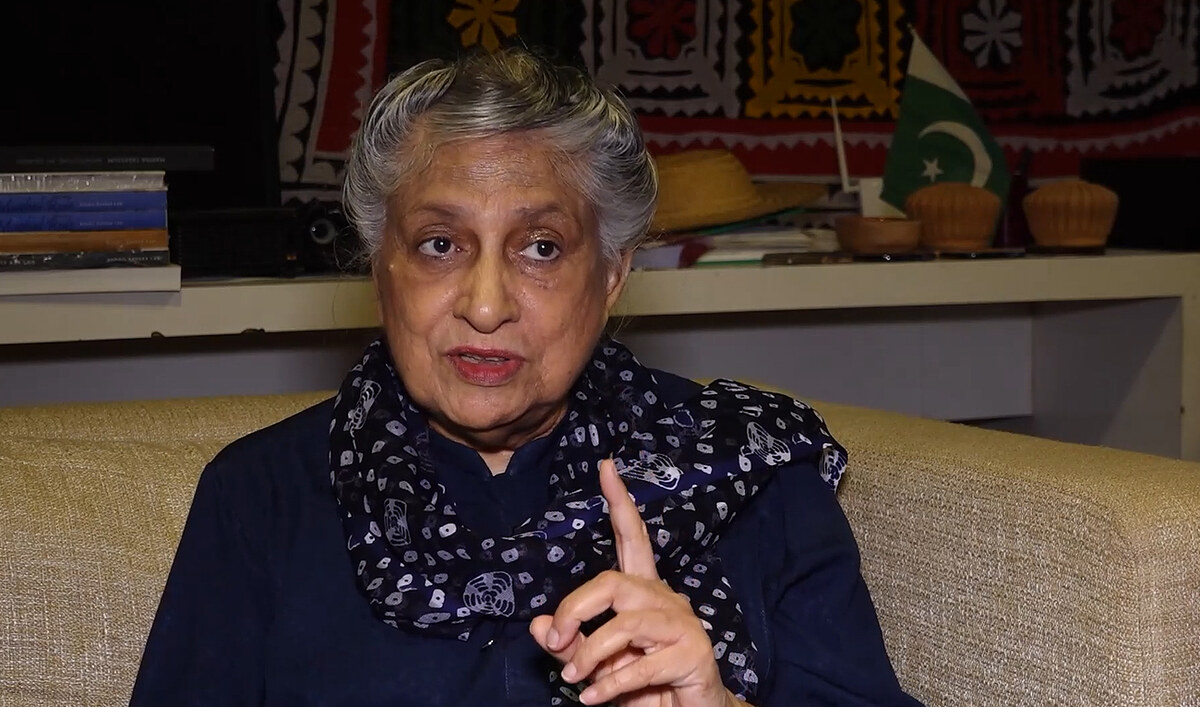MASTUNG, Balochistan: The Quetta-Karachi highway in Pakistan’s southwestern Balochistan province is notorious for fatal road accidents throughout the year. But for the last three years during the holy month of Ramadan, it has become known for something else: a shop-cum-bakery where you can get discounts of up to 30 percent on over 50 items.
Abdul Hakeem, who hails from Mastung city some 50 kilometers north of the provincial capital of Quetta, has been running the ‘Asia Bakers, Sweet and Super Mart’ on the Quetta-Karachi highway for 13 years. But for the last three consecutive years during the fasting month of Ramadan, he offers discounts on basic food items like flour, sugar, dates, oil, tea, and lentils.
Inflation reached a record high of 38 percent in Pakistan last May but eased to 23.1 percent in February, still on the higher side mostly due to high food and energy costs. Though newly elected Prime Minister Shehbaz Sharif has announced a Rs12.5 billion ($40 million) Ramadan relief package, there is a history of heightened food inflation during Ramadan in Pakistan.
“When people go there [to government-run utility stores], it costs a lot, it is difficult, people still purchase at higher rates,” Hakeem told Arab News at his shop earlier this week as he sat on the floor with two workers and packed boxes marked “Ramadan Relief Package.”
Behind him, bottles of different brands of oil were lined up on a shelf, each marked down by at least 7-10 percent.
“Despite the [government’s Ramadan relief] package, people still get expensive things at utility stores.”
But not at his shop:
“The rates thank god that people get here, without any inconvenience or pushing and shoveling, you leave your house and in your own area, in your own city, you get this [discount] facility, so it is a reason for happiness for them.”
“ONE MONTH FOR ALLAH”
The 23-year-old grocery store owner decided to launch Ramadan discounts in 2021, when he was moved by the sight of a crowd of desperate customers, including the elderly and women, lining up outside a grocery store in Mastung Bazar during the holy month.
“We earn 11 months but this one month is for Allah,” Hakeem said, adding that he was not bothered by the losses his shop faced in Ramadan due to the discounts.
“When we offer this Ramadan [discount] package, the actual reward [from God] is four times higher.”
The shop has many grateful customers, including 40-year-old professor Rihan Din Baloch, who walked 8 kilometers from Wali Khan village to buy Ramadan groceries at Hakeem’s super store.
“Although the government has announced Ramadan relief packages in utility stores and established Sastar Bazars, we can’t buy quality food items there but here they are selling quality items at discounted rates as compared to other markets in Mastung and Quetta,” Baloch said.
Balochistan is Pakistan’s largest province by area but its most backward by almost all social and economic indicators.
“In Pakistan’s Balochistan province, the poverty line is much higher, at least 70 to 80 percent people here are living below the poverty line,” Baloch said.
“So if you offer people such Ramadan packages, they will also be able to enjoy their Ramadan, buy food items, eat and drink. These types of packages should be given by all businesses, as much as possible. They should provide as much relief as they can this Ramadan.”
55-years old local resident of Mastung, Abdul Majeed, who was visiting the shop for the first time, said he had heard about it from friends and was surprised to learn that the discounts were real:
“Obviously, if they are giving discounts, it is to reap rewards [from God], so that the stove burns in every house, everyone gets to have iftari [fast-breaking meal] and sehri [fast-keep meal].”
Assistant Commissioner Mastung Atta ul Munim also applauded Hakeem and his workers for their charitable initiative.
“It is a good cause for the people of Mastung,” he told Arab News. “Every businessman should show this goodness in the holy month.”


















